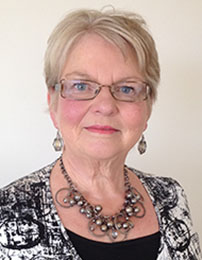“I have no trouble with people my own age!
Of course, I’m an ‘oldie’ ……..” from a reader.
Dr Lamont replied:
One of the exciting aspects of our wonderful brain is its ability to adapt to the tasks we need it to do. Growing new brain connections and strengthening old neural pathways helps us learn and develop right into late old age.
One of the ways the brain does this is to put its resources into tasks we do all the time, and withdraw resources from things we no longer do very much.
When I was carrying out research into memory across the life span, one of the tasks participants completed was to look at forty men’s faces – 20 were of young men and 20 were of older men. Then they saw eighty faces and had to point out the ones they had seen before.
The young people taking part had no problem at all in picking out the correct young faces, but were not as good as choosing the older faces correctly.
For older people it was the opposite. They were really good at choosing older faces correctly but when the young faces came often said “You are tricking me – you have put the same young faces in lots of times.”
I hadn’t, of course, but it just showed that older people, who often associate much more with other older folk than they do with young people keep the ability to know ‘who’s who’ because they are using that skill all the time.
It works in other ways, too. It is well researched that we can distinguish between people of our own ethnicity better than we do people from other cultures. In psychology it is called ‘own group bias’, and I am sure you can think of other circumstances where it comes into play.
What does this research mean for us?
Interact with younger people as often as you can! Strengthen those neural pathways. If you don’t see young people in person very often, look at photographs and news items and recall the names. (Even if it is a struggle, don’t give up,)
This practice will help you improve the skill of face recognition.
 Answered in 2020 by Dr Allison Lamont, PhD (Psych), MA (1st), CPsychol (BPS), NZAC, NZPsS, APS, ASSBI.
Answered in 2020 by Dr Allison Lamont, PhD (Psych), MA (1st), CPsychol (BPS), NZAC, NZPsS, APS, ASSBI.





In Corona virus times, ‘own group bias’ may now be labelled ‘bubble’.
I have a question: could I use this item (with credits and a link) in the next Rotorua Grey Power magazine? The magazine a quarterly. The spring issue will be edited in. about two months,.
Yes, ‘bubble’ is very appropriate! And we are happy for you to reprint the article in your Rotorua Grey Power magazine. The more sharing of our messages the better – everyone needs to know about keeping brain connections and memory skills active.
I’m 94 in two weeks and had no difficulty with judging the expressions. Perhaps it’s because I taught for 20 years. I have used some of your quiz questions in a small news letter I did for a tiny retirement village. Hope that was ok.
That’s absolutely fine, Kath. I do hope the others enjoy them! Best wishes from Gillian